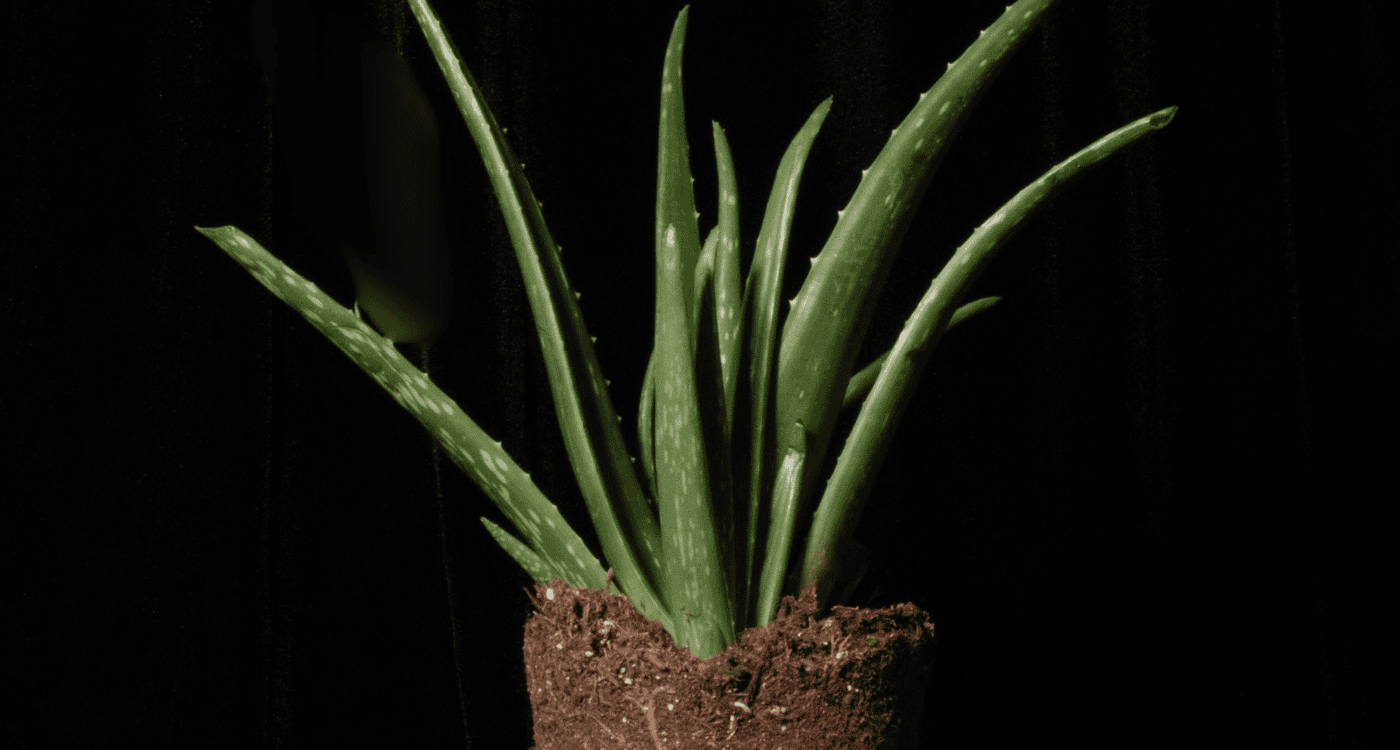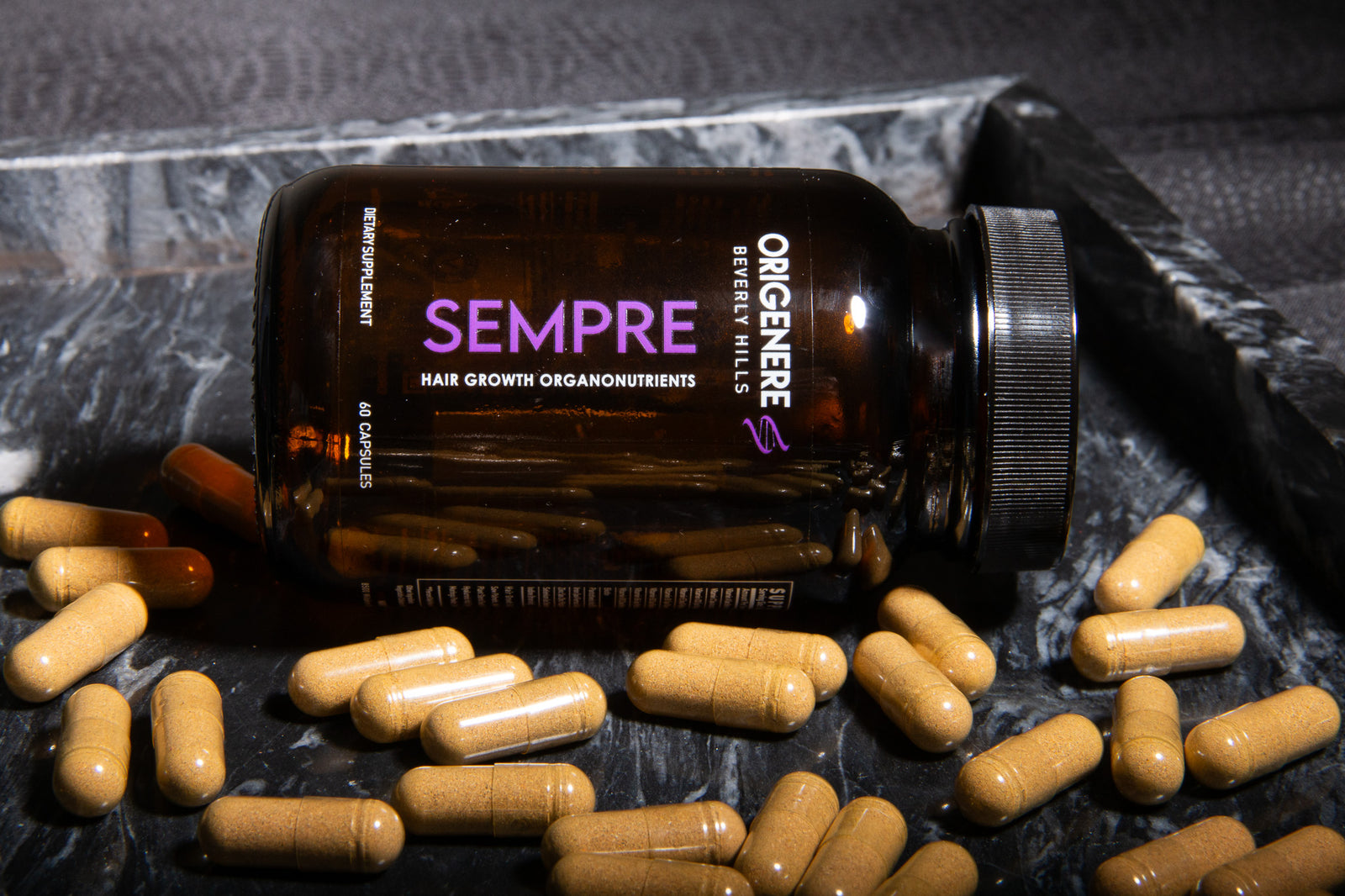Aloe Vera for Hair Growth: A Physician’s Review

Summary Points
-
Aloe vera for hair growth nourishes follicles, supports scalp hydration, and helps prevent hair loss through vitamins, enzymes, and antioxidants.
-
Its proteolytic enzymes remove buildup while soothing irritation and restoring natural pH.
-
Pure aloe vera gel improves cell turnover, strengthens the barrier, and enhances microcirculation for healthier hair.
-
Aloe’s soothing and anti-inflammatory properties make it ideal for itchy scalp, dryness, and oil imbalance.
Introduction
The aloe vera plant (Aloe barbadensis miller) has been revered for centuries as the “silent healer” of skin and scalp. From ancient temples in Egypt to modern dermatology labs, its gel continues to bridge nature and science.
Vitamins A, C, E, and B12 plus minerals like zinc and magnesium enrich aloe vera for hair growth plus deliver hydration, micro-exfoliation, and antioxidant defense in one elegant formula.
Modern research shows that aloe’s mucopolysaccharides bind water to skin and scalp cells, while its proteolytic enzymes gently dissolve excess oil and dead skin. The result? A nourished scalp environment where hair can thrive naturally, without silicones or harsh surfactants.
Historic and Cultural Significance
Aloe’s journey spans more than 4,000 years. Cleopatra was said to use the gel daily as part of her beauty rituals, while Greek physicians prescribed it to soothe scalp irritation and wounds.
Alexander the Great carried crates of aloe on military campaigns to heal soldiers’ injuries. In India, it was called “kumari,” meaning “the youthful one,” symbolizing renewal.
As trade routes expanded, aloe vera traveled from North Africa to Asia, and eventually to the Caribbean and Americas. By the 17th century, it had become a cornerstone of apothecaries and early trichology—a botanical bridge between ancient healing and modern scalp science.

Modern Applications in Hair Care
Today, aloe vera for hair growth is valued for its adaptability. It suits nearly every hair type, from dry and brittle to oily or color-treated. In high-performance haircare, aloe functions as:
-
A humectant: drawing moisture deep into the cuticle and scalp.
-
A mild cleanser: removing excess sebum and product buildup without stripping natural oils.
-
A scalp-balancing agent: maintaining the microbiome and supporting a healthy pH.
In professional formulations, it replaces synthetic conditioners and harsh surfactants with biocompatible hydration making it ideal for sensitive or inflamed scalps.
Benefits of Aloe Vera for Hair and Scalp Health
Aloe Vera and Hair Benefits
Aloe’s blend of amino acids, antioxidants, and natural sugars strengthens follicles and reduces breakage.
Its enzymatic action clears buildup from styling products and pollution, allowing hair to better absorb nutrients and moisture.
Clinical studies suggest that aloe’s polysaccharides can increase scalp hydration and improve tensile strength, leaving hair smoother and more resilient.
Aloe also enhances shine by flattening the cuticle layer, allowing light to reflect evenly—nature’s gloss effect, no silicone required.
Aloe Vera for Scalp Health
Healthy hair begins with a healthy scalp. Aloe’s proteolytic enzymes gently digest dead keratin and flakes, supporting balanced exfoliation.
Its polysaccharides form a breathable film that locks in moisture while shielding against heat and pollution. Regular use restores cell turnover and provides a subtle antimicrobial defense ideal for those prone to irritation or flaking.
Aloe Vera for Dry Scalp
For tightness, itch, or dullness, apply raw aloe vera gel two to three times weekly.
The gel’s high water content (over 99%) instantly hydrates while minerals like magnesium and zinc calm inflammation.
Aloe helps regulate sebum production, preventing the oily-dry cycle that often leads to dandruff or follicle blockage.

Aloe Vera for Scalp Inflammation
Inflammation is a hidden driver of hair thinning. Aloe’s plant sterols and fatty acids—including β-sitosterol and lupeol—naturally inhibit inflammatory enzymes and relieve redness.
Studies have shown that topical aloe can ease symptoms of seborrheic dermatitis, psoriasis, and radiation dermatitis. Its dual action as an anti-inflammatory and wound-healing agent accelerates skin recovery and strengthens the scalp barrier.
Aloe Vera and Scalp Psoriasis Support
Scalp psoriasis is a chronic inflammatory condition in which the skin’s immune response becomes overactive, leading to redness, flaking, and discomfort along the scalp and hairline. While management of psoriasis should be guided by a healthcare professional, supportive botanical care can help improve comfort between treatments.
Aloe vera gel is particularly valued for this because it contains polysaccharides and plant sterols that draw moisture into the skin and help reinforce the scalp’s natural barrier. These compounds can assist with:
-
Reducing visible flaking
-
Relieving tightness or dryness
-
Calming redness and surface irritation
Aloe may help make the scalp feel more hydrated and at ease, especially when used consistently in a gentle routine that avoids sulfates, drying alcohols, and heavily fragranced styling products.
For individuals using prescription therapies such as topical steroids, vitamin D analogues, or medicated shampoos, aloe-based tonics can often be layered between medicated wash days to help maintain scalp comfort. Always check with your health care provider to ensure compatibility.
This reflects cosmetic and comfort-focused use only and does not serve as medical treatment guidance.
How Often Should I Use Aloe Vera for Hair Growth?
For best results, apply aloe gel or an aloe-based tonic two to three times per week.
Massage into the scalp for five minutes to stimulate circulation, leave on for 15–20 minutes, and rinse with a gentle, pH-balanced shampoo.
Consistent use helps maintain hydration and visible texture improvements within four to six weeks.
How Often Should I Use Aloe Vera for Hair Growth?
For best results, apply aloe gel or an aloe-based tonic two to three times per week.
Massage into the scalp for five minutes to stimulate circulation, leave on for 15–20 minutes, and rinse with a gentle, pH-balanced shampoo.
Consistent use helps maintain hydration and visible texture improvements within four to six weeks.
Aloe Vera for Thinning Hair
Thinning hair often stems from microinflammation and reduced follicular blood flow.
Aloe’s amino acids and folic acid nourish roots while stimulating circulation through vasodilation.
Its enzymatic activity clears follicle obstructions and promotes oxygen exchange—creating the ideal foundation for thicker, stronger growth over time.
Aloe Vera for Hair Growth: Scientific Mechanisms
Aloe operates through several biological pathways:
-
Stimulates blood flow to the follicles, enhancing nutrient delivery.
-
Encourages collagen synthesis, fortifying structural proteins in the scalp.
-
Supports cellular turnover, promoting renewal of the epidermal barrier.
-
Reduces inflammatory cytokines like COX-2 and NF-κB, restoring comfort and balance.
Together, these actions explain why aloe vera for hair growth remains physician-endorsed: it restores equilibrium to the scalp while reinforcing long-term follicle vitality.

Aloe Vera for Color-Treated Hair
Yes - Aloe vera is safe for color-treated hair.
Its natural pH (4.5–5.5) matches that of the scalp, helping seal the cuticle and prevent fading.
Unlike sulfates, aloe’s gentle surfactants cleanse without leaching pigment, leaving color vibrant and hair soft.
Aloe Vera Tonic Benefits
An aloe vera tonic provides lightweight hydration, nutrient delivery, and follicular stimulation.
In Origenere’s Physician formualted Naturale Scalp Tonic, bioactive aloe compounds are stabilized to retain full potency enhancing hydration, calming irritation, and renewing scalp balance
Safety and Precautions
Aloe vera gel from the inner leaf is widely regarded as safe for topical use and is commonly used in dermatology to support hydration, comfort, and barrier repair. While most individuals tolerate aloe well, those with reactive or sensitized skin may occasionally experience mild redness or itching. The yellow latex layer beneath the leaf rind, which can be irritating, is not used in Origenere® formulations; we work exclusively with purified inner-leaf gel to minimize sensitivity. As with any botanical ingredient, individual response can vary, so we recommend a small patch test before full application, and discontinuing use if irritation occurs.
Guidance on Use and Frequency
For most scalp and hair routines, aloe vera can be used 2–3 times per week to support hydration and comfort.
Those with highly sensitive or inflamed scalps may benefit from starting with less frequent application and assessing response.
Because aloe is water-rich and lightweight, it layers well under conditioners, serums, and oils without interfering with other routine steps.
DIY Aloe Vera Hair Mask
Ingredients:
-
2 tbsp pure aloe vera gel
-
1 tbsp coconut oil
-
1 tsp honey
-
1 tsp aloe juice (optional for extra hydration)
Directions:
Blend until smooth. Apply from roots to ends, cover with a shower cap, and leave for 20 minutes.
Rinse with a mild shampoo. This mask replenishes moisture, smooths frizz, and soothes irritation—ideal for pre-shampoo nourishment.
Systemic and Metabolic Benefits
Beyond topical use, consuming aloe vera juice can support nutrient absorption and gut health.
Its polysaccharides, especially acemannan, enhance intestinal barrier integrity and metabolic function, which in turn improves nutrient delivery to follicles.
This internal external synergy reinforces why aloe has been valued for both skin and systemic wellness across cultures.
Phytonutrient Profile Relevant to Hair Health
|
Compound |
Function |
Hair & Scalp Relevance |
|---|---|---|
|
Vitamins A, C, E, B12 |
Antioxidant protection |
Prevents oxidative stress, supports scalp balance |
|
Minerals (Zinc, Magnesium, Selenium) |
Enzyme cofactors |
Strengthen follicles, aid keratin production |
|
Polysaccharides (Acemannan) |
Hydration & barrier repair |
Deeply moisturizes and soothes scalp |
|
Proteolytic Enzymes |
Gentle exfoliation |
Clears buildup, promotes cell turnover |
|
Sterols (β-Sitosterol, Lupeol) |
Anti-inflammatory |
Calms irritation and redness |
Origenere Formulations Featuring Aloe Vera
- Naturale Scalp Tonic: Hydrating botanical therapy for dry, itchy, or inflamed scalps.
- La Rosa Hair Care Line: Designed to be safe in pregnancy, breastfeeding and all stages.
- Nero Scalp & Face Mask: Combines aloe vera extract with kaolin clay and essential oils to detoxify and soothe.
- Buongiorno Conditioner: Balances moisture for smoother, more manageable hair.

Each formula reflects the synergy of Italian craftsmanship and dermatologic science, capturing aloe’s purest form for scalp comfort and hair vitality.
FAQs About Aloe Vera for Hair Growth
-
What are the effects of aloe vera on hair?
It hydrates, protects, and nourishes the scalp while improving circulation and barrier strength. -
Can aloe vera help with dandruff?
Yes. Its antifungal compounds and soothing action relieve flakes and irritation. -
Is it safe to mix aloe vera with other ingredients?
Absolutely—combine with coconut oil or honey for enhanced moisture. -
How long until results appear?
Noticeable shine and improved texture are often seen after 4–6 weeks of consistent use. -
Can aloe vera replace conditioner?
It can serve as a lightweight conditioner or be layered beneath traditional products for extra softness.
Conclusion
From Cleopatra’s beauty rituals to modern trichology labs, aloe vera remains one of nature’s most trusted allies in scalp and hair health.
It hydrates, purifies, and soothes bringing balance where the scalp needs it most.
Sources:
Antibacterial and Antifungal Activities of the Leaf Exudate of Aloe megalacantha Baker
Evaluation of the Nutritional and Metabolic Effects of Aloe vera
Therapeutic Effects of Aloe vera on Cutaneous Microcirculation and Wound Healing in Second Degree Burn Model in Rats
In Vitro Wound Healing and Cytotoxic Activity of the Gel and Whole - Leaf Materials from Selected Aloe Species
Recent Advances in the Management of Rosacea through Natural Compounds





Leave a comment